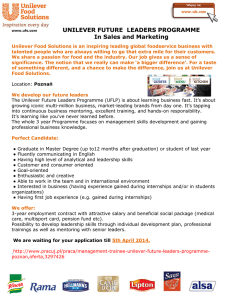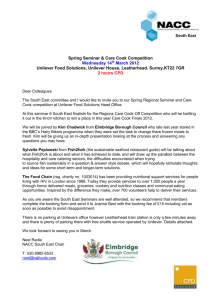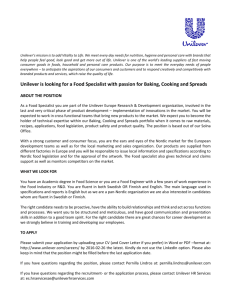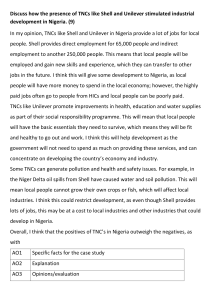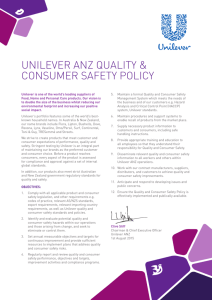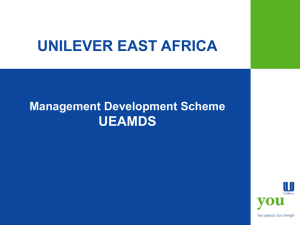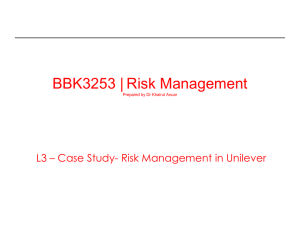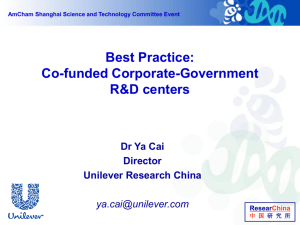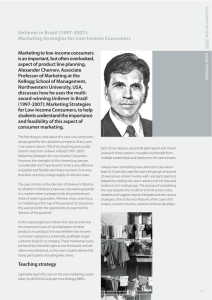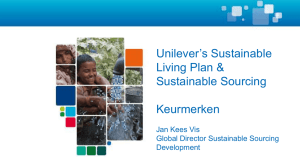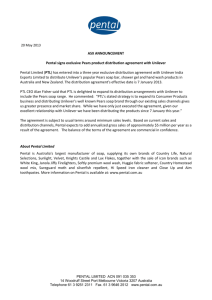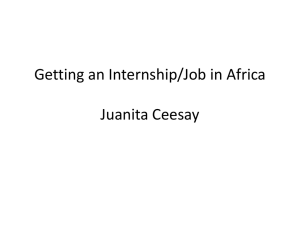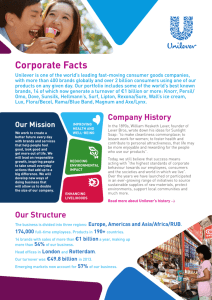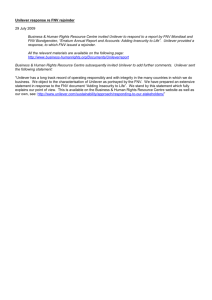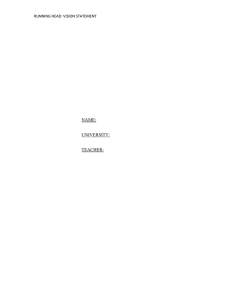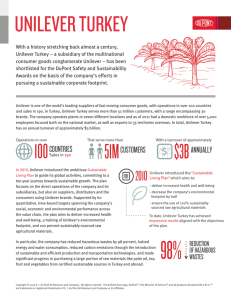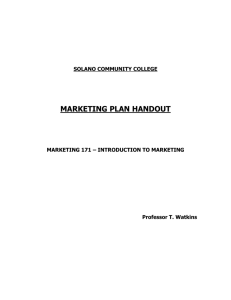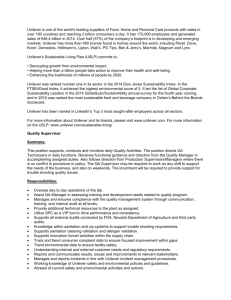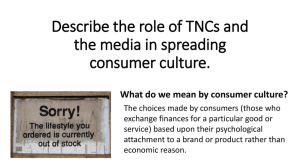The globalisation of food production.
advertisement
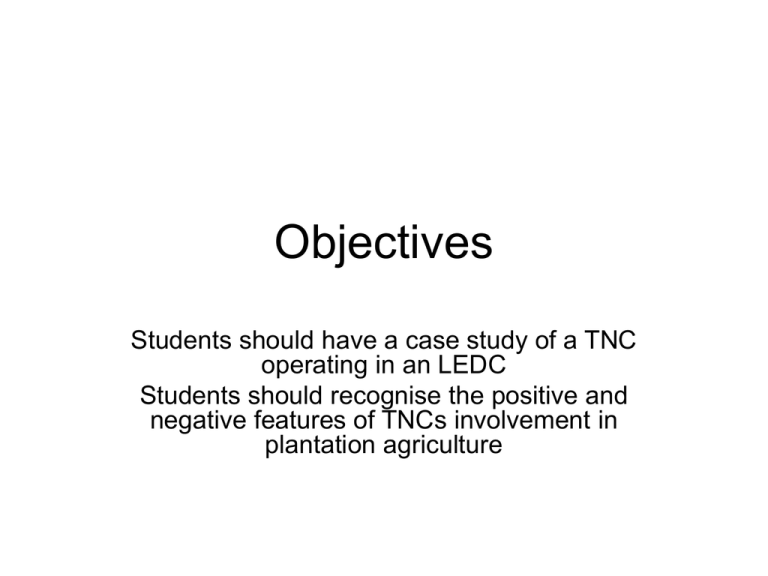
Objectives Students should have a case study of a TNC operating in an LEDC Students should recognise the positive and negative features of TNCs involvement in plantation agriculture Questions from your reading? What does this image reveal? Some examples of TNCs involved in agriculture • • • • • • • Philip Morris Unilever Nestle Cargill ICI Du Pont Monsato • Transnational corporations are among the world's biggest economic institutions. A rough estimate suggests that the 300 largest TNCs own or control at least onequarter of the entire world's productive assets, worth about US$5 trillion.1 TNCs' total annual sales are comparable to or greater than the yearly gross domestic product (GDP) of most countries (GDP is the total output of goods and services for final use by a nation's economy). Itochu Corporation's sales, for instance, exceed the gross domestic product of Austria, while those of Royal Dutch/Shell equal Iran's GDP. Together, the sales of Mitsui and General Motors are greater than the GDPs of Denmark, Portugal, and Turkey combined, and US$50 billion more than all the GDPs of the countries in sub-Saharan Africa.2 How is Agriculture globalised? The globalisation of food production. 1. On a world map note down where Unilever’s plantations can be found using figure 8.25. 2. Then read the article on Unilever pages 110 to 112 of Agriculture and food. 3. Where do you think the head quarters of Unilever can be found? 4. Get into 2 groups, one arguing for the presence of firms like Unilever in agriculture, the other against. You are to prepare notes for your case. Discussion on “Should Unilever be involved in Tanzania?”. “Unilever – food for the people?”
